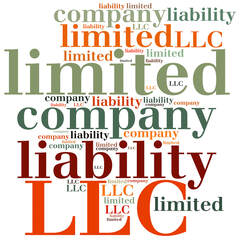CT LLC Formation

CT LLC formation does not have to be complicated, but you also want to make sure you have properly considered all the issues that should be addressed. This is especially true of the CT Operating Agreement, whether you are forming a single member LLC or and LLC with several members who will be your partners and run the business. It’s not always simple to answer the question of when an individual should hire a lawyer. If you are looking for a Lawyer in the Fairfield or New Haven County area you can contact my office to schedule a free consultation. I have represented sole proprietorships, LLCs, corporations and partnerships so with my background and experience I can offer insightful, reliable legal advice for your business legal concerns. No matter how big or small your legal issue is you can count on me to assist you in analyzing your business needs and providing you with knowledgeable and experienced advice.
Looking for an LLC Attorney?
When looking for an LLC attorney to advise you on a new or existing limited liability company keep in mind the specific needs you may have for that limited liability company. The initial consultation you have on the phone should be free of charge and you can use that as an opportunity to explain the type of business you will be running (or are currently running) and provide the LLC attorney with some basic information regarding the business and the members who will be owners of the LLC. Provide him or her with the following information:
- The type of business;
- The number of members in the LLC;
- Whether or not all the members of the LLC will be managing it;
- Whether or not the LLC members will be putting in capital to run the business versus capital raising or seeking financing;
- Based on the nature of the business do you feel confidentiality and non-circumvention agreements may be required of the members;
- Based on other business interests of the members, will a waiver of fiduciary responsibilities be necessary;
- Who will have authority to bind the LLC in contracts and spend money on behalf of the LLC;
- Whether a simple majority vote or two-thirds vote will be required for decision making or to resolve disputes.
Based on this information the LLC attorney will likely send you a list of questions regarding the running and operation of the LLC which he can then review before the meeting and will greatly help with your CT LLC formation. Some of these questions are general in nature but others are specific to the type of business and the way the members want it to be run. I always find this helpful because these questions also serve another important purpose which is to save everyone time and legal fees when it comes to the preparation of the Operating Agreement. The Operating Agreement governs the operation of the LLC and includes such things as voting rights, capital contributions, time commitments, salaries and/or profit sharing, buyouts, member retirement and/or termination, transferability and exit strategies, to name a few.
Depending on the nature of the business the limited liability company will be running, the CT LLC attorney should advise the members on issues involving legal requirements, risks, potential problems and the method of how disputes or disagreements among the members will be resolved. Key topics to be discussed are buyouts, expansion plans, rights of first refusal if a member wants to sell and capital contributions.

Why Not Call for a Free Phone Consultation?
Have a free phone consultation with an attorney to discuss your proposed CT LLC formation or existing limited liability company. I can advise you on various issues from breach of contract issues, confidentiality agreements, non-compete agreements and independent contractor agreements.
CLICK HERE TO CALL FOR A FREE CONSULTATION 475-244-5141
Joseph B. LaRocco
Attorney at Law
Joseph B. LaRocco, Esq. has represented corporate clients, partnerships, business owners, entrepreneurs and business professionals regarding transactions involving contract drafting, breach of contract claims, marketing, distribution, licensing and conflict resolution. He has advised clients on structuring, corporations, limited liability companies (LLCs), joint ventures, partnerships and strategic relationships. He has also prepared employment agreements, made introductions, provided networking opportunities for his clients and worked with corporate attorneys to meet the needs of his clients.
He has represented various clients on a transactional basis as their legal adviser providing deal structuring and due diligence, as well as contract review, drafting and closing services. He has also handled CT LLC formations, assisted companies looking to enter into licensing and distribution agreements with their products on an international basis and helped structured numerous transactions for his business clients.
Who Does the LLC Attorney Represent?
Another thing that the members of the limited liability company should understand is that the CT LLC attorney, unless otherwise agreed upon, is representing the LLC and not the individual members. Not many people realize this, but it creates a conflict of interest for the attorney to represent the individual members of the LLC. Whether or not litigation is involved in a dispute, the attorney cannot represent any member individually.
The attorney’s goal is to draft as accurately as possible the wishes of the members so that they can run the business, but also avoid major hurdles and delays of running the business if disputes arise down the line. Disagreements and disputes among members are not uncommon, so it is important to provide in the Operating Agreement an agreed upon method or procedure to resolve the disagreement or dispute. Since the LLC attorney is representing the LLC and not the individual members, in the event a disagreement or dispute among the members does arise, the LLC attorney will not be able to represent any of them individually because of the conflicts of interest he will face in representing any one member against the others, even though that attorney handled the CT LLC formation.
The same would be true if the attorney had set up a corporation instead of an LLC for several people, some of which were just shareholders and some of which were both shareholders as well as officers and directors of the company. The corporate attorney would not be able to represent any of them individually against the company because of the conflicts of interest.
Have a free phone consultation with an attorney to discuss your proposed CT LLC formation or existing limited liability company. I can advise you on various issues from breach of contract issues, confidentiality agreements, non-compete agreements and independent contractor agreements.
CLICK HERE TO CALL FOR A FREE CONSULTATION 475-244-5141
Joseph B. LaRocco
Attorney at Law
Joseph B. LaRocco, Esq. has represented corporate clients, partnerships, business owners, entrepreneurs and business professionals regarding transactions involving contract drafting, breach of contract claims, marketing, distribution, licensing and conflict resolution. He has advised clients on structuring, corporations, limited liability companies (LLCs), joint ventures, partnerships and strategic relationships. He has also prepared employment agreements, made introductions, provided networking opportunities for his clients and worked with corporate attorneys to meet the needs of his clients.
He has represented various clients on a transactional basis as their legal adviser providing deal structuring and due diligence, as well as contract review, drafting and closing services. He has also handled CT LLC formations, assisted companies looking to enter into licensing and distribution agreements with their products on an international basis and helped structured numerous transactions for his business clients.
Who Does the LLC Attorney Represent?
Another thing that the members of the limited liability company should understand is that the CT LLC attorney, unless otherwise agreed upon, is representing the LLC and not the individual members. Not many people realize this, but it creates a conflict of interest for the attorney to represent the individual members of the LLC. Whether or not litigation is involved in a dispute, the attorney cannot represent any member individually.
The attorney’s goal is to draft as accurately as possible the wishes of the members so that they can run the business, but also avoid major hurdles and delays of running the business if disputes arise down the line. Disagreements and disputes among members are not uncommon, so it is important to provide in the Operating Agreement an agreed upon method or procedure to resolve the disagreement or dispute. Since the LLC attorney is representing the LLC and not the individual members, in the event a disagreement or dispute among the members does arise, the LLC attorney will not be able to represent any of them individually because of the conflicts of interest he will face in representing any one member against the others, even though that attorney handled the CT LLC formation.
The same would be true if the attorney had set up a corporation instead of an LLC for several people, some of which were just shareholders and some of which were both shareholders as well as officers and directors of the company. The corporate attorney would not be able to represent any of them individually against the company because of the conflicts of interest.


